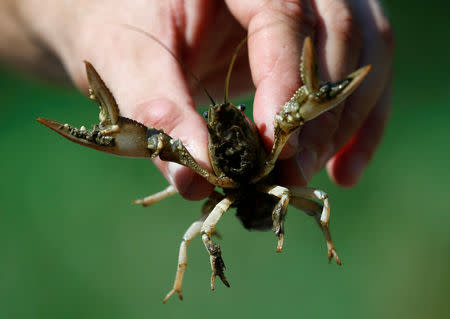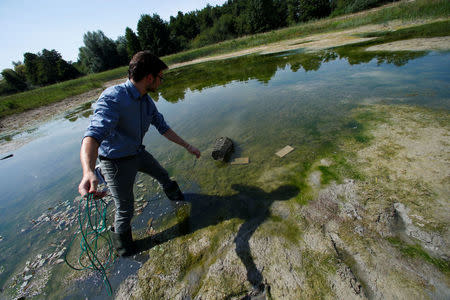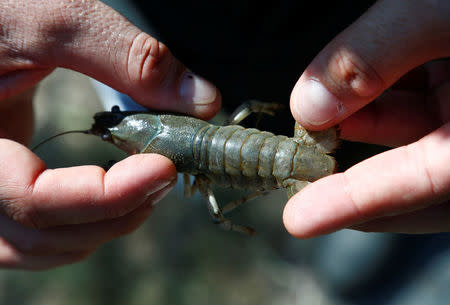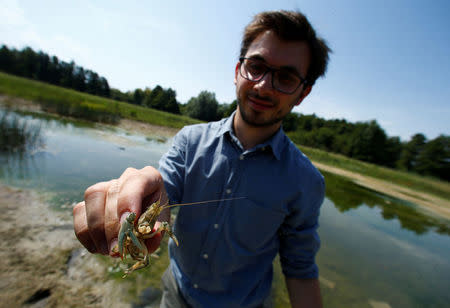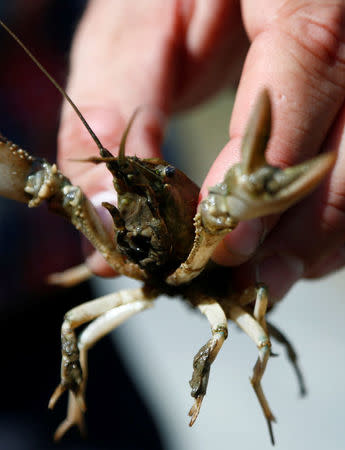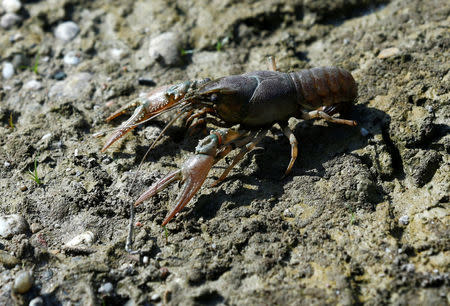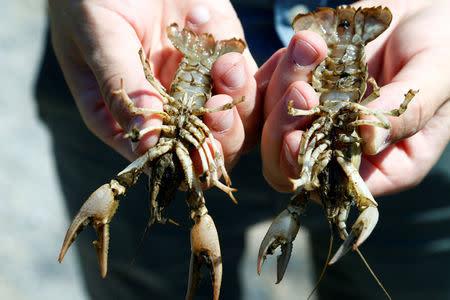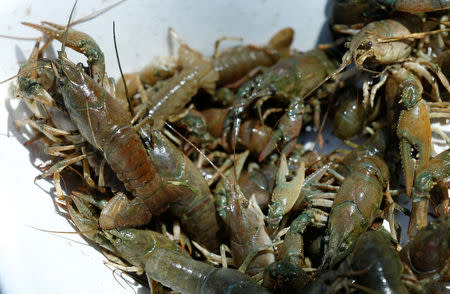Calico crayfish wreaks havoc in German waters
RHEINSTETTEN, Germany (Reuters) - The calico crayfish can fit in a human palm but it multiplies fast and poses a threat to fresh water life in Germany, an expert said.
The crayfish, also known as the papershell crayfish, is native to North America and it is not clear how it arrived in Germany.
Professor Andreas Martens, head of the Institute of Biology and School Gardening at the Karlsruhe University of Education, said the crayfish arrived in Germany around 25 years ago and has spread hugely since then - including in the Upper Rhine.
"It is particularly dangerous here as it can also travel over land and can get into the smaller bodies of water, which are particularly important for the amphibians," he said.
"Once in the ponds it can develop quickly and massively reproduce and once it achieves this proliferation then there will be nothing left in the water but these calico crayfish."
Over the last two years it has been hurting the ecosystem of a pond in the southwestern German city of Rheinstetten. Martens said its population was growing there and next year there would probably be mass proliferation.
"Then there will be nothing left here any more, there will be no water plants, nothing. There will just be a milky coffee like soupy water left," he said.
Martens said he and his colleagues were trying to manage the problem - such as by putting tree trunks down on the ground that the crayfish cannot cross but the amphibians can.
"Most importantly we need to get the last female out of the water so that we prevent more proliferation next year," he said.
(Reporting by Reuters Television; Writing by Michelle Martin; Editing by Matthew Mpoke Bigg)

